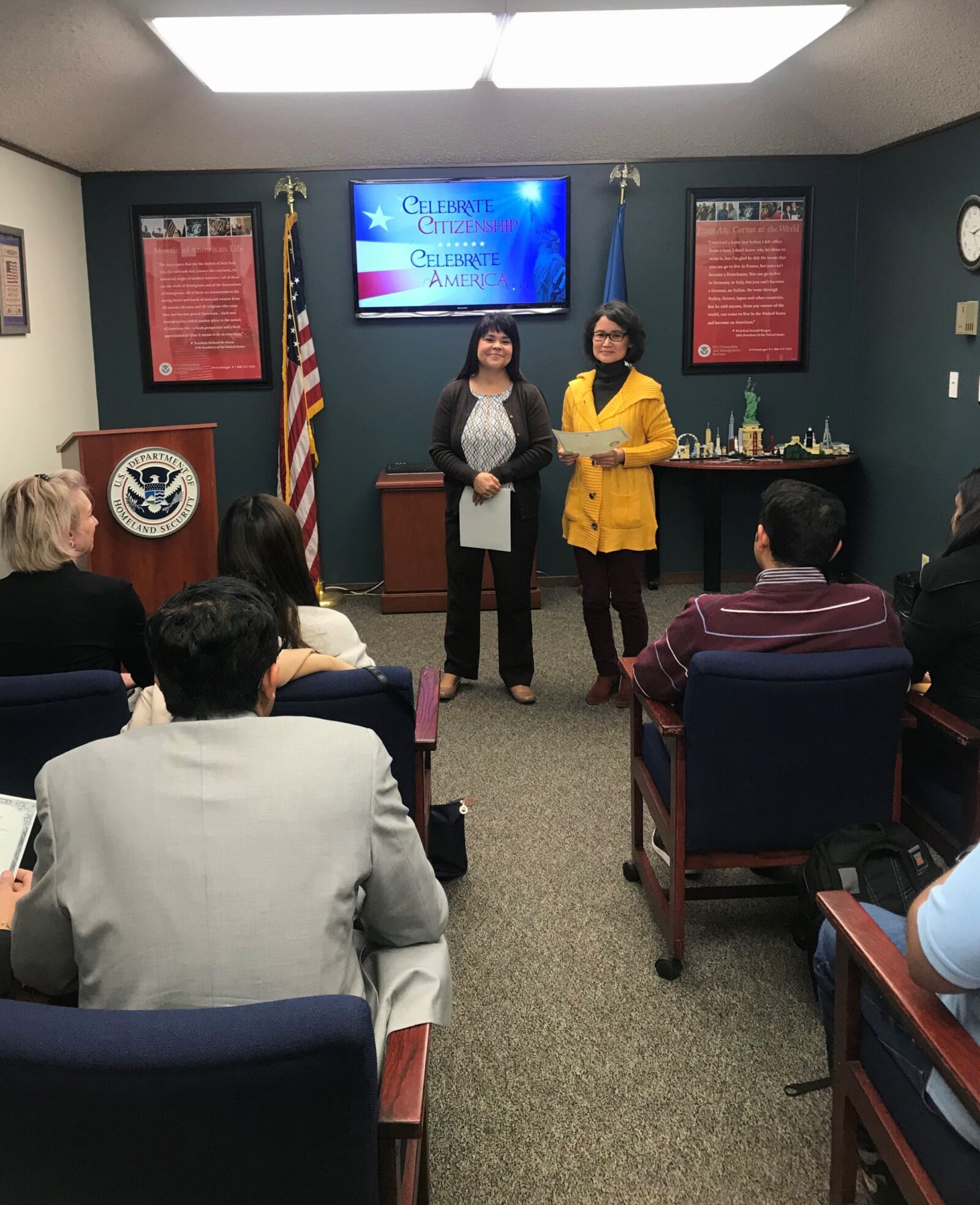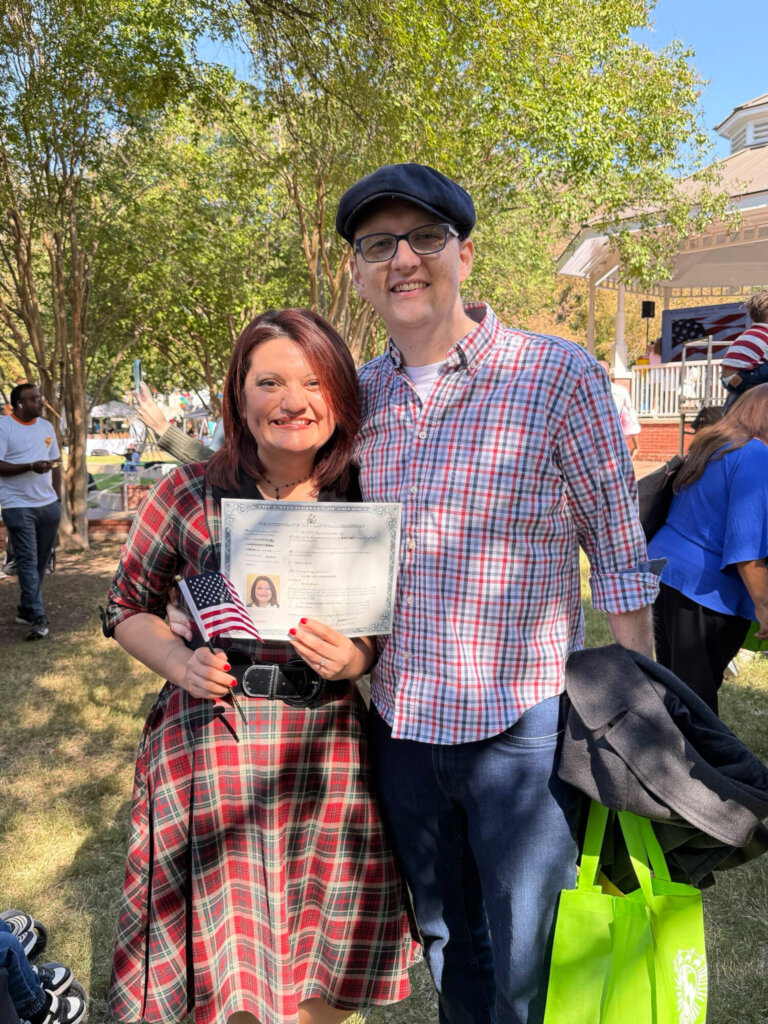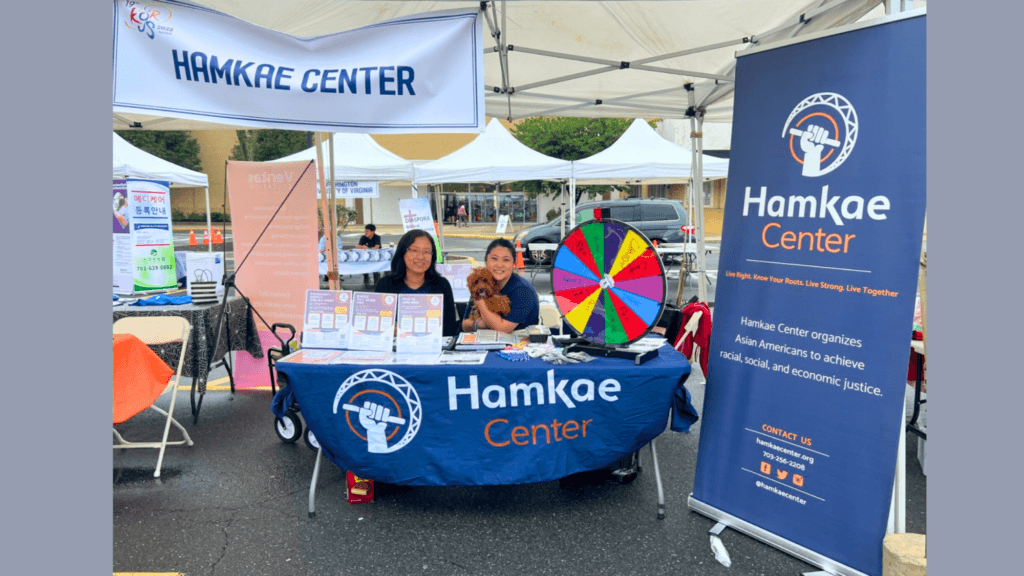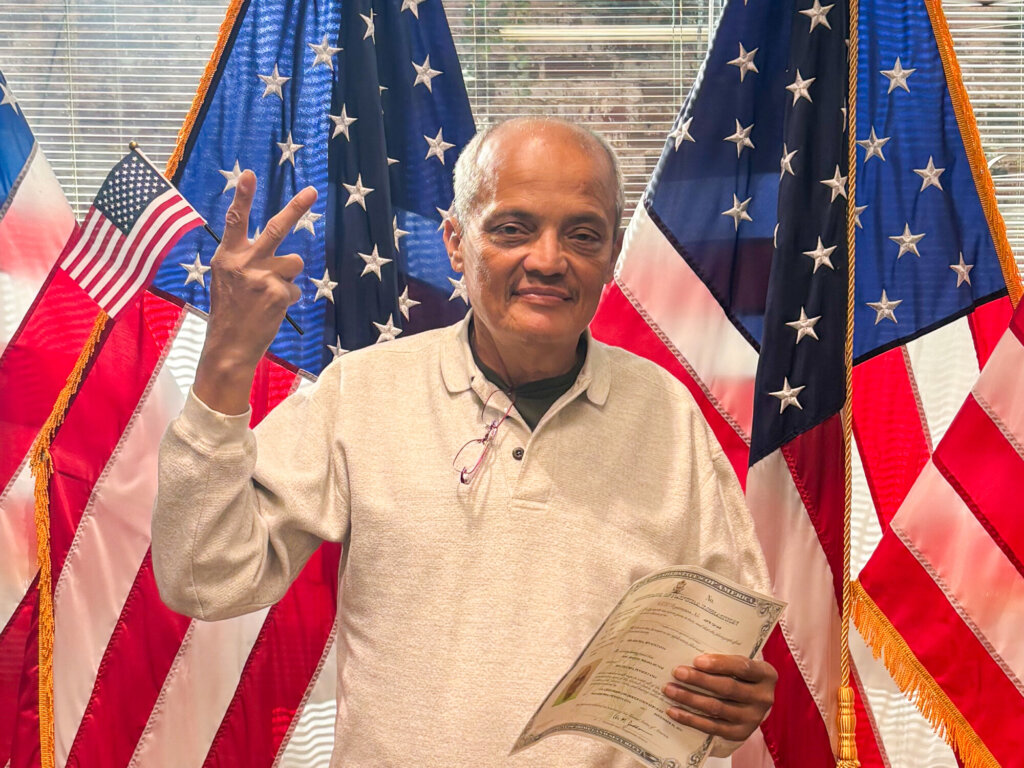Kimiko Olling: I folded 1000 cranes to express my gratitude

Explore More
I am from Osaka, Japan. I came to the United States in January 2002, 18 years ago. I got a green card and I got married but I didn’t get my citizenship until last year—2019. I waited, waited, waited. At first, I didn’t feel that I wanted to change my nationality. I would have to give up my Japanese citizenship. That is why I didn’t bother. But ever since 2016, I didn’t feel very safe living here without my U.S. citizenship. So many immigration laws have been changed and a lot of people are being deported. I heard awful stories and it was getting worse. Then last year it came close to us. I heard that ICE took a family from our neighborhood. It was no longer happening to people we don’t know; it could have been a school friend of our daughter. I am here legally, but I didn’t feel safe anymore.
Ever since I was in high school, I was interested in getting to know people outside of Japan. I wanted to learn about their countries and their cultures. I
was hoping to come to the U.S.A. and I had a lot of pen pals all over the
world. I went to university to learn English and American literature; I was
particularly interested in African American literature. After I graduated
university, I worked for a textile company in the exports department. In Japan in
the 1980s I experienced a lot of sexism in the workplace. Women were expected
to get married by 24. At 25, people said that you were like an after-Christmas
cake; you were valued less. I always thought that was not right. I didn’t fit
into that society. So, three years after college, with money I saved I went to
England. I was 24.
I fit very well into Western society. I felt very free because they
didn’t treat women the way I was treated in Japan. I learned English and I lived
in England about 7 years, but I was by myself. I didn’t have any family. I
decided to go back to Japan where I eventually went back to college and studied
about Social Welfare and wanted to be a social worker. I was 39 years old by
the time I graduated, and it was extremely hard to get a job because they
thought I was too old. Eventually, I met my husband who is a U.S. citizen and I
moved to the United States. Now I have a family here. My daughter has dual Japanese-American
citizenship and she must choose one before she turns 22. But she is more
American. Giving up my own Japanese citizenship was a really difficult decision
to make, but I did it for my family here.
Another reason I wanted to be a citizen is because a lot of things these days remind me of the Japanese American, executive order. [The order that led to the incarceration of 120,000 Japanese Americans during WW II.] I feel that a lot of Asian people, especially Japanese Americans, don’t have a voice because they don’t want to talk about what happened in the past. I feel that the experiences of Asian people are forgotten. We need more of a voice. I decided if I become a citizen, I can have a voice and I can vote. Finally, I became 60-years-old last year, and I decided that this is the land where I would end my life journey.
(Photo courtesy of Kimiko Olling)
I researched and got the citizenship application forms by
myself, but I wasn’t sure if my form was filled out correctly. So I found out about
a Washington New Americans citizenship clinic that they were doing with the Refugee Women’s Alliance at a local church. I met a lot of volunteers and I met a lawyer
who corrected some things and made sure my application form was
correct. Then I sent it to the USCIS Seattle office on November 3, 2018. I
think my application was perfect. I felt really grateful and I felt confident. Then
I started going to the library for citizenship classes. I studied every day for
the interview and the civics test. It was my routine to listen to the tape every
day.
At first, the USCIS said my interview would be in December 2019. Then
I got an email changing it to September. I was excited. I thought, that’s great
because it’s shorter than one year. I waited through August. I didn’t get an
interview and I was anxious. Then it was September, so I called them and checked
online, and they said they couldn’t find the receipt number. I was really
panicking, what’s wrong? Did they lose my form? There was nobody I could talk
to. I called the Refugee Women’s Alliance and Annie explained the situation to
me. Because so many people applied at the Seattle office, they were sending us
to the Portland, Oregon office or to the Yakima, Washington field office.
My interview appointment was December 4, 2019 in Yakima. That is far away,
it took us about three hours to drive. I was sick and not feeling well and
thinking, I need to reschedule. But my husband said, no, you have to go once
you’ve scheduled it. Thankfully my husband drove me to
Yakima. The interview was very early, at eight in the
morning, so we stayed in a hotel the night before. There was a chance it would
snow, so we had to rent a four-wheel-drive car. My daughter had final exams and
couldn’t come with us, so we had to arrange for her to stay at her friend’s
house. And we have a dog that we had to put in a pet hotel. So, the trip was
really expensive. I also had awfully bad motion
sickness. I could not sleep that night, and the next morning, I was very
drowsy, and my brain did not work at all. The heater was not working in the
hotel and the temperature in Yakima was 23°!
(Photo courtesy of Kimiko Olling)
But even with all of this, I passed the interview and test. Because we came from Seattle, the USCIS officer told me to come back at 2:00 p.m. on the same day for my oath ceremony. I think there were about 30 people there. At the ceremony, we watched a video about people from all over the world in this country. And suddenly, while we were declaring our oath of allegiance, this phrase from Martin Luther King, Jr. came into my head, “Let freedom ring…. Free at last! … Thank God Almighty, I am free at last.” I was nearly crying. Martin Luther King is my hero, I really admire him.
Freedom of speech, freedom of expression, I didn’t feel until now.
Finally, I have this! I thought I would be very sad losing my Japanese citizenship. I
was sad of course, but I was more happy than sad. I
am very happy I can vote in 2020! Now I feel safe to express my opinion.
I feel more at home here with U.S. citizenship. I am not an outsider anymore. I
am now an American!
I want to
tell people who are thinking of getting U.S. citizenship—get it sooner! I
waited too long. Immigration law has been changing and it’s getting more
expensive and it’s becoming more difficult to become a U.S. citizen. I thought
that I would lose my identity if I became a U.S. citizen but in fact it is not
true. My inside didn’t change. I am a Japanese American now. I am very proud of
that. I felt joy after the long immigration process. I am free from USCIS now.
I don’t have to tell them my new address. I don’t have to renew my green card
every 10 years. I am looking forward to going abroad and coming back as a new U.S.
citizen with my U.S. passport at customs. It will be stress free!
To conclude, I want to share one of my favorite quotes from Dr.
King:
“So
even though we face the difficulties of today and tomorrow, I still have a
dream. It is a dream deeply rooted in the American dream.”



